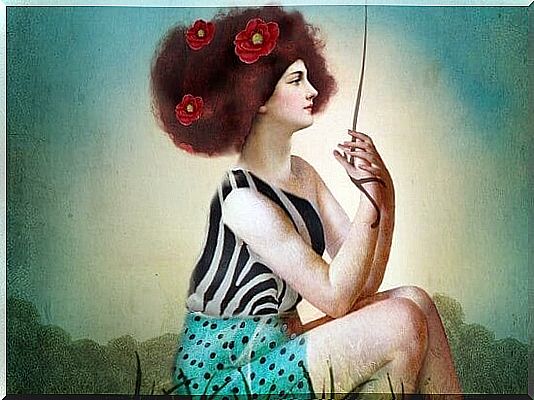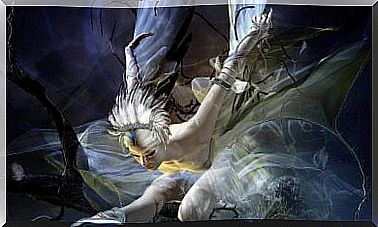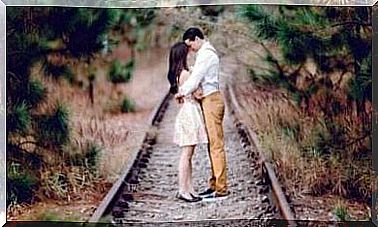When We Are Addicted To A Perfect Life

Life rarely gives us the feeling of complete satisfaction, at least in terms of the concept of perfection itself that we usually crave. In this superficial world of false needs, we feel as if we are missing a part, two parts, or even more, so that we become blind to what we already have. It seems that this particle that could fill our emptiness is the true and indispensable key to our happiness.
“If I could do my job, I would be happier” or “If I had a stable relationship and could start a family with this partner, I would certainly be happy” are thoughts that we have all had before and they represent a recurring one The majority of these thoughts are the product of our society and our upbringing: We have been taught that the more we have, the more beautiful life is.
We live under constant pressure and have too many expectations of ourselves that we believe that our life is a cake and that we need to taste every slice, which obviously only fills us with fear, frustration and sadness.
When we achieve one of our goals (especially if it is a material goal), we immediately pursue the next. We set ourselves a further and higher goal until we are finally completely drained.
Having desires and goals in life is legitimate and healthy too. What would be the point of life if we had no goals and dreams? But it is different to think that we need all that we want. Being able to differentiate is the key so that we don’t keep despairing that life doesn’t always go the way we planned.

A perfect life does not fill us with happiness
All people who have achieved each of their dreams and still do not feel perfect know what this heading means. Millions of people around the world seem to have a life we envy. When we see what they have achieved, we can even become jealous and convince ourselves that they have found the key to happiness and calm. But that’s a lie.
If these people are really happy, it is not because they have or have achieved all that they wanted, but because they now see life in a special way.
People are rarely satisfied with what they have. He always feels that he can do more, be better, or get more of what he wants. He feels empty, incomplete, imperfect …
With our tremendous efforts and efforts, we reap all the successes, buy all the things that bless our lives, but ultimately our bodies and souls are exhausted. When we finally have all of this, the blessing does not materialize and the need arises again to take another step.

If I have passed my master’s degree, do I have to go for a doctorate right away? Should I have a stable relationship? Next, I’ll try to learn new languages, travel, have children, etc. The worst part is that if for some reason I fail to put these ideas into practice, I’ll be an unhappy person.
Precisely this thought is the reason for our discomfort, since perfection is nothing more than an impossible concept to implement, but we want to get there, and therefore the feeling arises that we are unable to do anything.
So what is the key to happiness?
First of all, we should learn that no outside influence has so much power over us to change our emotional state. Nobody is happier in the long run just because they own more things than they did yesterday. When the children discover their new toys under the Christmas tree, their eyes light up, but this happiness only lasts for a few days. After this initial excitement, they want other toys and the ones they got are put aside again.
The same thing happens to us adults. Valuables lose value over time and what we acquire in the future will also lose its value. People have just got used to something and then they no longer want it and want something new again.
Why was Michael Jackson, with a property that even included an amusement park, more unhappy than former President of Uruguay, Pepe Mújica, who lived on a small farm?
Second, we need to realize that happiness, blessings, wellbeing, or whatever we want to call it, is to be found in ourselves and is a certain way of looking at life, namely to appreciate and love what we now have and be satisfied with it. The psychologist Rafael Santandreu describes this as frugality: it describes this ability to become aware that what we have is already enough and we don’t need anything else to be happy.

Finally, it is good practice to consciously resist and be open to anything that is unnecessary and to live without these things. We can try to fulfill our dreams, but we should also accept that not all dreams will come true, but this does not have to affect our personal well-being.
Taking life as it comes is one of the most important parts of feeling free.
You might think that’s conformism, but it isn’t. We appeal that you have dreams, hopes and goals and try to achieve them, but always remember that none of this has anything to do with whether you are happy.
If you increase your awareness, then
your life will change
Jon Kabat-Zinn, an ambassador of mindfulness
in the western world, believes … >>> More









